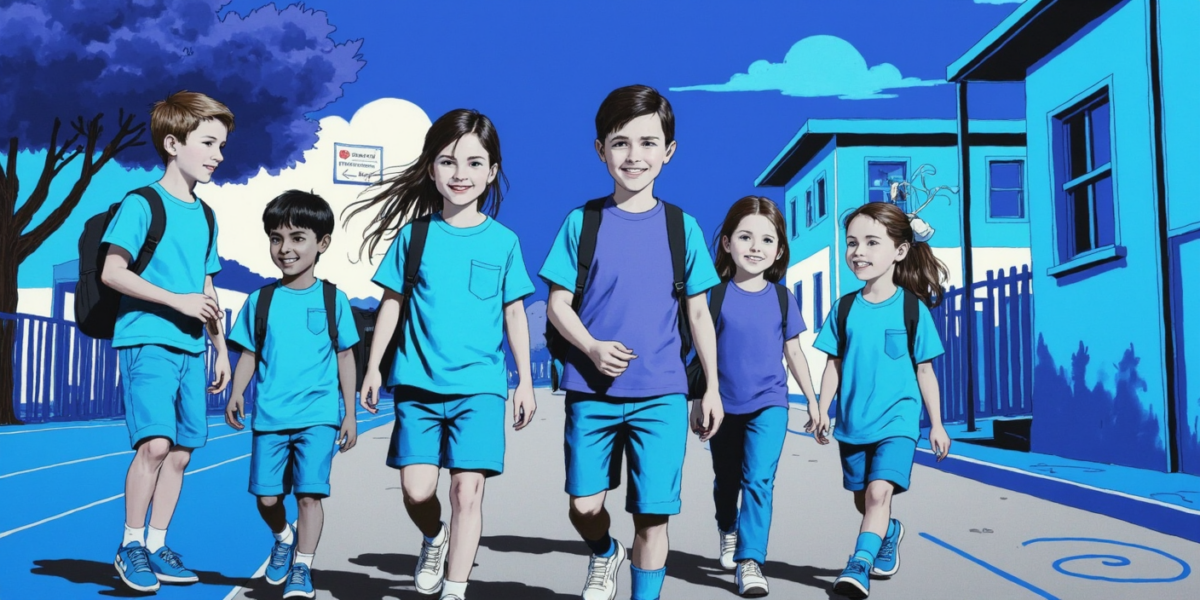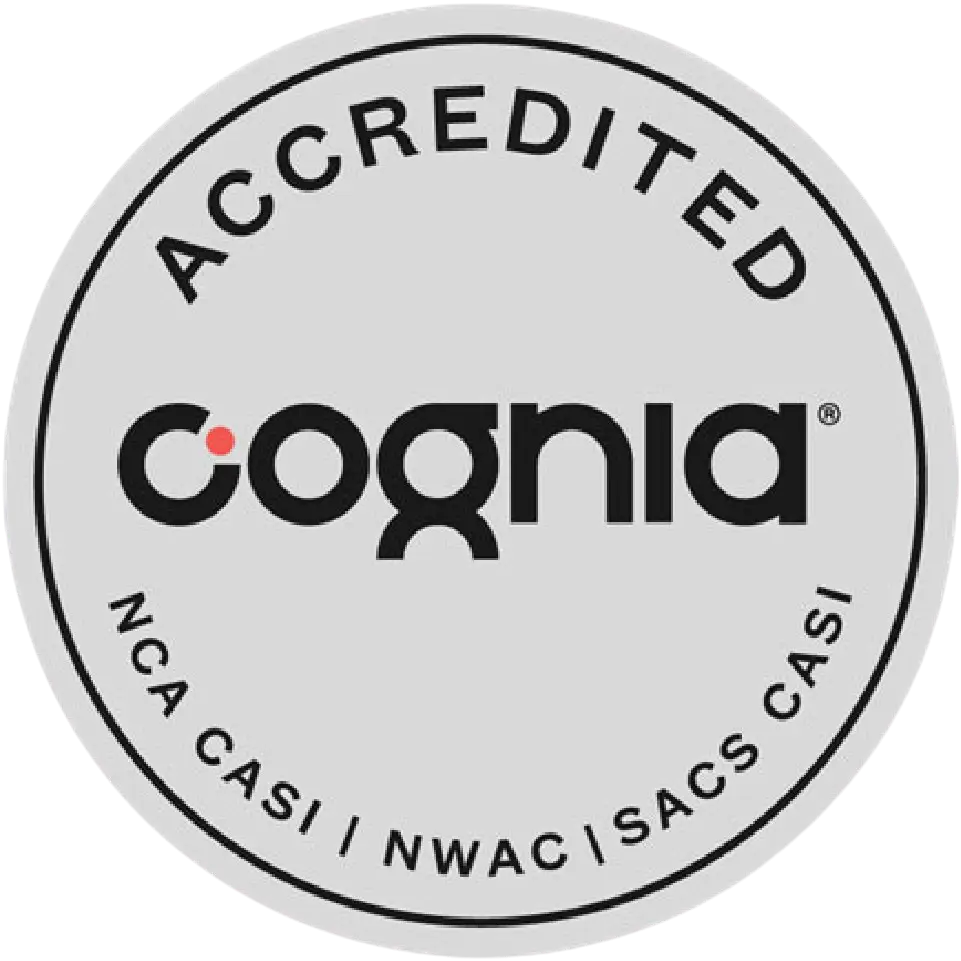Reinventing Education: How Alpha’s Personalized Learning Creates High Achievers in Just 2 Hours
Kelly Davis
on
April 9, 2025
Embracing the Future of Education Through Educational Transformation
Ever thought about turning the traditional education system on its head? Picture this: your kid achieves more in a mere two hours than they ever did in a full school day. Sounds wild, right? But at Alpha School, it’s not some far-fetched dream—it’s happening right now. We’ve jumped headfirst into a groundbreaking 2 Hour Learning model, supercharged by artificial intelligence, that’s shaking up how students learn. This isn’t just about trimming down the school day; it’s about completely redefining what education can be through personalized learning.
Let’s face it—the old-school six-hour day is kinda like using a flip phone in the age of smartphones. It’s outdated and doesn’t really fit into our fast-paced world anymore. By blending cutting-edge AI tutoring with a mastery-based, personalized approach, Alpha School is unlocking potential in ways traditional schools just can’t. We’re not simply shaving off hours; we’re boosting efficiency and making every moment count. Our students aren’t just hitting the books; they’re becoming high achievers both in and out of the classroom.
In a world that’s rapidly changing, sticking to outmoded educational models is doing our kids no favors. They deserve an education that’s not just stuck in the past but is gearing them up for the future. At Alpha School, we’re leading the charge into this new era of learning—one that’s innovative, personalized, and seriously impactful.
Breaking Down the Personalized 2 Hour Learning Personalized Model
So, you might be scratching your head and thinking: “Two hours? How’s that even possible?” It does sound a bit out there, but when you strip away all the unnecessary stuff, you realize how much time gets wasted in a typical school day. Our model is straightforward yet super effective, zeroing in on personalized learning to turn students into high achievers ready for whatever the future of education throws at them.
Here’s the deal: each day is split into two focused sessions. The first part is all about personalized academic learning. Using AI-powered adaptive systems, we tailor lessons to each student’s strengths, weaknesses, and interests. Gone are the days of one-size-fits-all lectures where some kids are zoned out while others are left in the dust. Instead, every student dives into material that’s spot-on for them, keeping them engaged and fired up. This individualized approach is the heartbeat of our educational transformation.
The second part? It’s all about life skills in the afternoons—the kinda stuff you don’t always find in textbooks but is absolutely crucial in the real world. From problem-solving and critical thinking to creativity and emotional smarts, we’re molding well-rounded individuals ready to tackle anything life throws their way. By weaving these essential skills into our program, we’re not teaching academic subjects; we’re prepping students for the future of education and beyond.
By honing in on these key areas, we’ve cut out pointless transitions and downtime. The upshot? A streamlined, high-impact learning experience that respects students’ time and turbocharges their potential.
Personalization Through AI Tutoring and Mastery-Based Learning
Let’s talk about the elephant in the room: artificial intelligence in education. There’s this big myth that AI is all about swapping out teachers for robots, but that’s totally not the case. At Alpha School, AI is a powerful ally that amps up the learning experience, allowing for a level of personalization you’d never get in a traditional classroom.
Our adaptive apps keep a constant eye on each student’s performance, tweaking lessons on the fly to suit their individual needs. If a student is killing it in math but hitting a wall in reading, the AI adjusts accordingly—serving up tougher math problems while offering extra help in reading. This way, students are never bored or overwhelmed; they’re always in that sweet spot where learning happens best. It’s personalized learning at its peak—a cornerstone of our educational transformation.
Mastery-based learning is another big piece of our puzzle. Students only move forward when they’ve nailed down a topic completely. This means no one gets left behind, and everyone builds a rock-solid foundation before moving on to more challenging stuff. It’s a total game-changer compared to traditional models where the whole class moves at one pace, regardless of whether everyone’s on board.
Our guides get to ditch the administrative slog and focus on what they love: supporting, mentoring, and inspiring. They use insights from the AI to tailor their support, offering targeted guidance that really hits home. This teamwork between technology and educators embodies the future of education.
Success Stories: From Ordinary to High Achievers
Take Emma, for example—a seventh-grader who used to feel like she was lost in the crowd of a big classroom. Keeping up was a struggle, and her confidence took a nosedive. Her parents were pretty worried about her slipping grades and dwindling enthusiasm for school.
But once she joined Alpha School, everything flipped. With personalized lessons that moved at her speed, Emma started to shine. “For the first time, I feel like the lessons are speaking directly to me,” she says with a grin. Not only did her grades shoot up, but she also rekindled her love for school. She’s now more engaged, more confident, and genuinely excited about her education.
Then there’s Lucas, a fifth-grader who was bored out of his mind at his old school. He’d finish his work early and spend the rest of the day twiddling his thumbs. At Alpha School, the AI keeps upping the ante to keep him on his toes. “Every day is exciting because I’m always learning something new,” he shares. Lucas is now soaring academically and diving deep into his passion for technology through our life skills program.
And these aren’t just one-off tales. Across the board, our students are making huge strides. Sure, standardized test scores are climbing, but more importantly, students are honing critical thinking skills, unleashing their creativity, and fostering a genuine love for school. They’re becoming high achievers ready to embrace the future of education head-on.
Preparing Students for the Future of Education and the Real World
Let’s get real—in today’s fast-paced, ever-changing world, just knowing stuff isn’t gonna cut it. Employers and universities are on the hunt for folks who can think on their feet, solve tricky problems, and adapt to new situations like champs. That’s why our efficient learning model puts equal weight on life skills alongside academics. This all-around approach is key to the future of education.
By weaving real-world scenarios into our lessons, students learn how to put their knowledge into action. Whether it’s through team projects, simulations, or hands-on activities, they’re racking up experiences that prep them for real-life challenges. This educational transformation isn’t just about hitting the books; it’s about equipping them with the tools they need to crush it in the real world.
We also zero in on emotional intelligence, where students learn how to navigate social situations, manage stress, and bounce back from setbacks. These skills are absolute gold and often get overlooked in traditional schooling. At Alpha School, we make sure our students aren’t just brainiacs but are also emotionally savvy and ready to take on the world.
Embracing Innovation: A New Role for Educators in Educational Transformation
Our educators? They’re the heart and soul of Alpha School. Far from being sidelined by AI, they’re actually empowered by it. With the nitty-gritty of assessments and data crunching handled by tech, our guides can pour their energy into mentoring students. This shift lets them craft personalized learning environments that push students to reach new heights.
Ms. Johnson, one of our veteran guides, puts it this way: “The AI tools give me incredible insights into each student’s progress. I can see exactly where they need support and where they’re excelling. It allows me to focus my efforts where they’ll have the greatest impact.”
This dynamic duo of technology and educators creates an electric learning environment. Guides feel more fulfilled, students get the personalized attention they crave, and the whole educational experience gets a serious upgrade. It’s a crucial part of the educational transformation that’s molding the future of education.
Is the Two Hour Model Right for Your Child?
As a parent, it’s totally natural to be intrigued but also a bit hesitant. The idea of packing a day’s worth of learning into two hours is, well, unconventional. But think about the perks. Without the usual distractions and time sucks of a traditional school day, students can laser-focus on learning that’s tailored just for them.
Ask yourself: Is my child genuinely engaged at school? Are they being challenged in the right ways? Do they have the time to chase other interests and passions? If you’re answering “no” to any of these, then our 2 Hour Learning model might be just the ticket. This personalized learning approach could be the key to unlocking their potential as high achievers.
We’re not about cutting corners here; we’re all about optimizing the learning experience. By focusing on quality over quantity, we make sure that every minute counts. And with extra free time on their hands, students can dive into sports, arts, family time, or just being a kid! It’s an educational transformation that strikes the perfect balance between academic excellence and personal well-being.
Taking the First Step: How to Explore Alpha School’s Educational Transformation
If you’re curious about what Alpha School can bring to the table for your child, here’s how to get started:
- Schedule a Visit: There’s nothing like seeing it for yourself. We invite you to swing by our campus, meet our awesome educators, and get a feel for our innovative model in person. Watch personalized learning and educational transformation come to life.
- Connect with Other Parents: Chat with families who’ve made the leap to Alpha School. They can offer real-deal insights and share their journeys while embracing the future of education.
- Reflect on Your Child’s Needs: Every kid is unique. Think about how a personalized, AI-enhanced education could tackle their specific challenges and nurture their strengths.
- Attend an Information Session: We regularly host sessions where you can dive deeper into our curriculum, motivational model, and the tech we use. See how we’re shaping high achievers through educational transformation.
- Ask Questions: Don’t hold back! Our admissions team is all ears and ready to tackle any questions or concerns you might have.
By taking these steps, you’re not just a spectator; you’re actively shaping your child’s education and opening up a world of new possibilities.
Embracing the Future of Education Together
We’re at a pivotal moment in education. We can either cling to outdated models that aren’t cutting it anymore or embrace innovation and forge a brighter path forward. At Alpha School, we’ve chosen the latter, and we’re witnessing firsthand the incredible impact it’s having on our students.
Imagine your child waking up every day, pumped to learn. Picture them fully engaged, challenged just the right amount, and supported in ways traditional schools can’t touch. Think about the skills they’ll gain—not just hitting the books, but also emotionally and socially—that’ll set them up for success long after graduation.
The 2 Hour Learning model isn’t just about saving time; it’s about giving students their time back to do what they love. It’s about quality, efficiency, and unleashing every student’s full potential. We’re not just educating; we’re inspiring the next generation of leaders, innovators, and thinkers. This is the future of education—a transformation that puts personalized learning front and center and molds high achievers.
The real question isn’t whether education needs a shake-up—it’s how quickly we can make it happen for the sake of our kids. We invite you to join us on this exhilarating journey. Take a closer look at what Alpha School has to offer and consider how it could be a game-changer for your child’s life.



